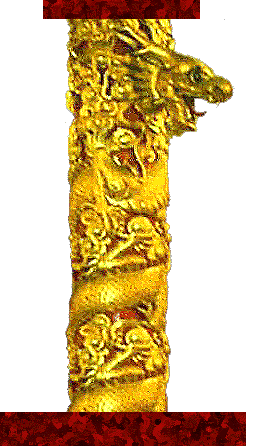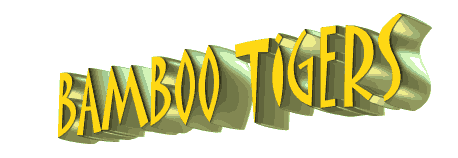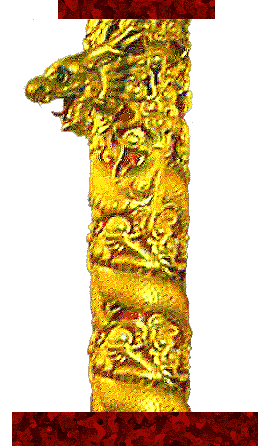| |
On a Friday in early May of 1974, Lincoln Louie waited for a bus on Stockton Street at the corner of Jackson, near the Asia Garden Restaurant where his mother worked. Lincoln's association with the Joe Boys was peripheral at best. He was a scant 15 years old, thus ranking among the younger members. He was not known as a leader nor was he singled out for his brilliant potential as such. To the casual observer, he would have been just another Chinese kid spending more of his time on the streets, away from school and away from home, heading for the ultimate dropout status that characterized his peers. But by those allegiance-conscious peers he was counted as a Joe Boy.
An open-air fruit stand displayed apples, oranges, bananas, grapes and pears in stalls at the corner, making a colorful bid for attention among the noise and aromas spilling from the wide-doored fish markets, restaurants, groceries and tourist shops that lined Chinatown's second great thoroughfare. Mooncakes plump with sweet bean paste and poppy seeds were displayed in a bakery nearby, and the flamboyant calligraphy of magazine and newspaper covers and front pages from Hong Kong and Taipei proclaimed the latest in fashion and headlines on a newsstand close at hand.
It seemed an ordinary afternoon. School was out for the week, and other kids ambled along the sidewalks. Housewives, busy at the Chinese custom of buying for meals from day to day, shuffled from shop to shop for vegetables, meat and rice. Many people were crowded around Lincoln, impatiently awaiting the arrival of the Number 30 Stockton bus which was as much a part of the Chinatown scene as the double-parked produce trucks that formed an eternal obstacle course for traffic creeping through Chinatown. There must have been a hundred people within 20 yards of where Lincoln stood. Nearly all carried shopping bags, a hallmark of the district, and nearly all were Chinese, but at least one of them was not.
An Italian immigrant, Bilio Guglielmi, assigned by the city to collect change from the municipal parking meters, made his rounds from one money box to another. He took no special notice of Lincoln until three automobiles drew up before the boy and stopped. His eyes popped widely when the car doors flew open and several other youngsters jumped out. One of them struck Lincoln to the ground. The crowd stood aside in studied nonchalance while a couple of the kids picked Lincoln up and threw him into a car. The Italian saw girls in the cars as well as boys.
"Madonna!" he muttered to himself and waited for a split second for some of the onlookers to rush to Lincoln's aid.
No one did. The meter-reader couldn't stand it any longer.
"Hey!" he shouted. "Don't you see what's happening in front of your eyes? We gotta help. Oh, somebody stop them, please!"
Not a soul stepped forward as the abductors leapt in behind Lincoln and the cars sped away. But Guglielmi, a man of not only compassion but also presence of mind, whipped out his tally sheet and scrawled down the three license numbers.
A couple of blocks away near Portsmouth Square Park--once the downtown heart of old San Francisco when the Bay lapped where the Transamerica Pyramid Building presently stands--Inspector John McKenna, Officer Tim Simmons and other policemen were driving along Washington Street on routine business. They spotted a gang youth's car ahead of them and pulled him over beside the park. That afternoon, as usual, Portsmouth Square was thronged with Chinatown habitués who populated the small park in the daytime to occupy themselves with penny-ante gambling on dominoes and card games and gossip about the local scene. Great fortunes were never lost in the crowded little square, but quite a few reputations were laid waste there.
Ever watchful for anyone who might have some useful information about the April 29th murder of Gene Fong, an older brother of imprisoned Joe, the cops stopped the boy for a hopefully fruitful chat. They knew him to be a member of the Wah Ching, the gang suspected in the homicide, and his car had been spotted near the murder scene on the afternoon Gene was killed.
"Hiya, Fat. What's happening? Anything interesting going down?"
"No, sir. I ain't seen nothin' lately. I mind my own business, y'know."
Cynical chuckles from the policemen. "Sure, Fat. Did you ever hear of the Wah Ching?"
A vigorous shaking of the head from the kid. "Hell, officers, I don' know no guys like that. I'm just plain fella, y'know."
"C'mon now, Fat. We know you're a Wah Ching. Where were you the afternoon Gene Fong was killed?"
Further conversation of a similar nature led to nothing. While thus occupied, the officers failed to notice a string of three cars passing rapidly a block away across the park, headed for the freeway on-ramp near the Hyatt Regency Hotel. Lincoln Louie cowered in one of them. They would probably not have known him anyway. To the police, he was no more than a name buried deep in files at the Hall of Justice, listed among hundreds of citizens who at one time or another had run afoul of the vehicle and traffic laws. To them, he was then no more than a record and a set of fingerprints.
The following morning, McKenna and Simmons reported to the Homicide Detail on orders to work overtime on the Gene Fong investigation. They went out to talk to several witnesses, but the results of their interviews proved negative. The perpetrators remained unnamed.
Gene Fong, 30, once an associate of the Wah Ching and the later Yao Lai, had been shot down in the street in broad daylight a week earlier, before his young wife's eyes, not far from where Lincoln Louie had been abducted. Gene had double-parked on Stockton in Chinatown and strolled across the street with his wife to the Top Quality Meat Market. It was apparent to him that a couple of carloads of Wah Ching were following him that afternoon, but he was an arrogant man, and figured that he could risk the exposure as there were plenty of people about.
The Wah Ching confronted him on the sidewalk. "Hey, Fong, what kinda nerve you got makes you show up on our turf? Maybe you think your asshole brother gonna grow wings an' fly outta jail? He ain't here to protect you now!"
Gene's wife tugged at her husband's sleeve apprehensively. "Let's get out of here, honey. Let's get away from these guys."
Undaunted by the young gangsters, he shrugged her aside and entered the store, which was packed with customers. His bluff seemed to work. The Wah Ching returned to their cars and disappeared around the corner. What they did was circle the block. Gene Fong relaxed his guard.
The butcher weighed and wrapped a chicken for him and was taking his customer's cash when a young Chinese man with longish hair strode up beside the Joe Boy leader's elder brother and opened fire at point-blank range. One bullet missed the butcher by an inch and caromed off his scale. Another shattered the glass display case. Gene Fong stumbled outside with the gunman in pursuit. The last of four shots dropped him to the sidewalk in a spray of blood at the feet of a crowd of astonished shoppers. His wife kneeled beside him and cradled his head in her hands, then rose and walked away. Police, scrambling to the scene, stopped her and attempted an interview.
"Yes, I know who killed my husband," she admitted, "but I won't tell you."
Arriving shortly afterward, Inspector McKenna questioned the butcher. "What did you see? Who did you see?"
The butcher looked away. "I didn't see nothing," he said.
An anonymous caller to the Police Department said he was the brother of a Chinese girl who had witnessed the shooting. He offered a description of the killer. The police suggested that his sister come in personally to give the information. The girl agreed to this, but her mother was heard to scream an objection, and the conversation ended abruptly. Another Chinese woman on the street did agree to come forward. "I was walking past the Ping Yuen housing project when there was the sound of metal hitting the pavement," she said. "I actually thought someone had thrown something from a window of the Ping Yuen. As I glanced to the side, I saw a gun sliding along the street, and at the same time, I noticed this Chinese boy running past me, about three feet away. He was running very fast and didn't even slow down when the gun hit the ground. I stayed beside the gun till the police came. Yes, I think I could identify him. He was about 15 or 16 and short. His hair was long, straight, and black--a typical Chinese young person's hair style. He was wearing white pants and a gray sweatshirt with a hood."
The weapon in the street was a .38-caliber revolver. The Crime Lab would find a clear thumbprint on it, but matching the print to a person was another matter entirely.
No other leads were forthcoming from interviews of witnesses to Gene Fong's homicide. Frustrated by the maddening recalcitrance of the eyewitnesses who obviously knew more than they were willing to reveal, the policemen persisted. They hadn't become Chinatown specialists by giving up in the face of witnesses cowed by fear of gang retaliation.
| |
|









